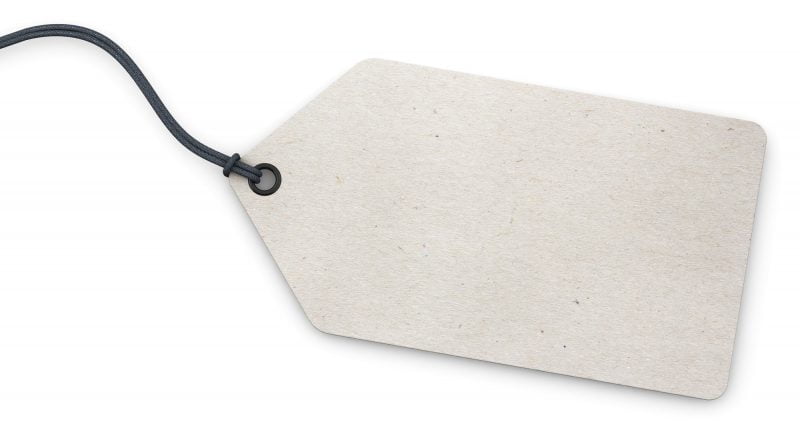The entrepreneurial impulse has strong roots in the American psyche. Upwards of 62 percent of US adults want a business of their own one day. In the old days, a lot of stumbling blocks stood between you and your own business, with money at the top of the list.
These days, eCommerce makes opening a business viable for much lower initial expenses. Of course, not everyone has a big idea for a product or service. For these people, selling white label or private label products can solve the problem.
Wondering about the white label vs private label difference? Keep reading for a breakdown of the differences, benefits, and pitfalls of each.
What is White Labeling?
Some manufacturers produce products that they don’t plan on selling themselves. These are typically products with mass appeal, such as headache medication or sunglasses. Rather than taking on the effort of creating a new brand, marketing the products, and shipping them out, the manufacturer makes these products available to retailers.
Any retailer can order them. The manufacturer will apply the retailer’s colors and logos to the product. You often see these products marketed as a store brand.
The “white” in the term white label means that the label is blank and available for any company’s colors and logo.
White labeling manufacturers do generally impose some limitations on their products. While they’ll apply whatever you want on the label itself, every buyer gets identical versions of the product.
So, let’s say grocery store chain A and grocery story chain B both buy their store brand acetaminophen from the same manufacturer. The consumer gets a chemically identical product whether they buy from store A or B.
What is a Private Labeling?
Private labeling works in a similar, but not identical, way to white labeling. A manufacturer produces a product it doesn’t plan on marketing itself. It sells that product to a third party.
Where private labeling differs is that the manufacturer typically enters into an exclusive agreement with one buyer. So, let’s say that grocery store chain A reaches an agreement with private labeling manufacturer A for mango salsa. When grocery store chain B comes along looking for mango salsa, the manufacturer won’t sell to them.
The manufacturer will still apply a custom label to the product.
The second place where private labeling differs is that the manufacturer will often make changes to a product based on the buyer’s request. For example, the manufacturer might add extra moisturizer or specific scents to hand soap.
Benefits of White Label Products
While label products offer potential sellers, such as new eCommerce stores, a lot of potential benefits. Right out of the gate, you avoid the costs of product design and development. You also avoid the time, hassles, and investments required to manufacture a product yourself or find a manufacturer.
White label products dramatically reduce your time to market. You’re only limited by the time it takes the manufacturer to actually make and ship your order to you.
You enjoy reliable product quality. Odds are good that the sample you get represents the level of the quality you can expect from every unit, barring damage in shipping.
Since white label manufacturers sell lots of units to lots of businesses, you generally enjoy low per-unit costs.
It’s also a simpler way for you to expand your brand without going through the entire product creation process. For example, let’s say you sell a handful of custom products. If you find a white label product that complements your custom products, you can add it to the catalog with your branding on it.
Benefits of Private Label Products
Private label products offer many of the same benefits as white label products. You leverage someone else’s manufacturing infrastructure. Again, that frees you from the costs of building your own.
You get the advantages of their in-house quality control to help ensure consistency in the products.
The biggest benefit you get from working with a private label company, such as 5DAY, is the opportunity for product customization. These customizations may prove minor, such as asking for versions of the product that use your specific brand colors. In other cases, that customization may prove more extensive, such as asking for changes in the core design.
Once you get those changes pinned down, though, you have a unique product that you can market in ways that prove impossible for more generic products.
White Label Pitfalls
The main pitfall with white label products is that they are identical for every seller. You’ll struggle to promote them on the features alone. As a general rule, you need a strong or at least recognizable brand that helps boost sales.
Big chains use the power of their own brand names as the selling point for store brand products. If you want to build a business on white label products, get very serious about how you’ll build brand awareness.
Private Label Pitfalls
One of the big pitfalls of private label products stems directly from one of its benefits. Customization can a little or even a lot of time to market. In general, the more customization you need or want, the longer you’ll wait for the product.
The second pitfall is cost. Since the company sells that product exclusively to you, you can’t capture the same economies of scale that keep per-unit costs very low. That means you need premium pricing and premium branding for the product and business.
White Label vs Private Label and You
The white label vs private label question is less about which business model you prefer and more about your long-term goals. If you’re looking for a way that you can establish a foothold, white label products give you an easy and cost-effective entry point. The tradeoff is that you’ll work hard on brand building.
If you have an established brand and you’re looking for ways you can branch out with a premium version of your brand, private label products can help you do that.
Looking for more business tips? Check out the posts in our Finance section.









